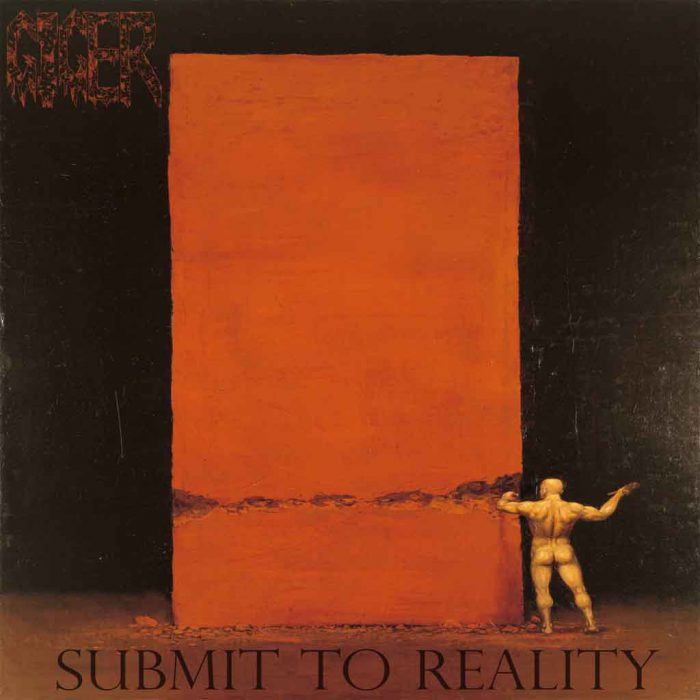
Language can be useful for its specificity or its generality, with the latter being exemplified by the phrase “chord progression.” It means a sequence of root notes and harmony notes and in rock music signifies the harmonic backdrop to a song, where in jazz it means more the geometry of a melody in relation to the notes of the scale, signifying what harmony will be used to write melodies within it.
Giger makes good use of jazz style chord progressions, forming distinct harmonic structure to each piece, and adds to this solid heavy metal riffing and citations from a range of metal styles. From a music theory standpoint, this band proves more interesting than most in the sludge genre.
However, this comes with some confusion, namely that the stylistic division prevents these compositions from ever fully coming together. The band has not found its voice; instead, it hints at what it wants to be with threads running through these different styles, but their contrasting directions make this vocabulary muted and confused.
Each of these long tracks builds carefully from an introduction to a theme, then repeats the theme, adding variants and commentary in every cycle, creating an immersive mood that is fractured periodically by jarring introductions of alternative rock or death metal where consistency would have amplified the theme.
In death metal, chord progression refers to modal strips which are used to establish a shape which must be echoed, whether directly or inverted, throughout the explication and denouement of theme; this presents an entirely different science of composition than blues, rock, jazz, pop, or country.
When combining this with rock elements, it quickly becomes lost because in metal, the riff dominates as theme and all things derive from that, where in rock and jazz the harmony (and note geometry) dominate and the point is to make commentary within that framework.
Giger shows great promise but sacrifices it by piling together too many influences without knitting them together into a voice. The raw music comes from a place of creativity, but as in most postmodern things, the ensuing texture of influences obliterates all but the most basic message, a tendency which exhibits itself here in the looping of these songs after the theme is expressed, never quite managing to explicate it through conflict.
Submit to reality — who can fail to like that title? — demonstrates a good deal of thinking and quality music, but needs to choose a path and direct those energies there so that it may express its essence instead of hovering on the surface. Since this is a compilation of early works, it opens the door to future possibilities of this promising band.
Tracklist
1. Rasputin
2. Hasheeshian
3. Misotheist
4. The Green
Lineup
Avery Bradshaw- Bass Guitar, Lead Vocals
Tyler Weed- Guitar, Vocals
MacCauley Crawford- Guitar
Tristan Collier- Drums/Percussion


Thank you so much Brett for the opportunity to be featured here among these hallowed halls, and for a review we would not have received anywhere else with critiques we all shall take to heart. The next release will be the second half of this album, but after that it is all fresh material. The second half of the album will be more riffcraft the correct way. I am looking forward to the future of my band.
MacCauley Alexander Crawford, Lead Guitarist, Composer
run, man! they’ll tear you apart! just go and don’t look back!
Sounds like Mastadon/Kyuss stuff, but the most important part is the well toned man ass, which means you’re a legit artist.